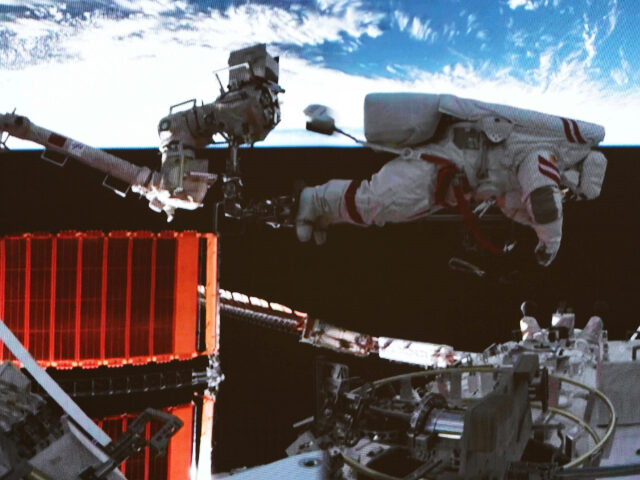The China Academy of Space Technology (CAST) said Wednesday that it plans to double the size of China’s Tiangong space station, extending its operational life to more than 15 years and positioning the platform as an alternative to the International Space Station (ISS).
The Tiangong became operational in 2022 and is currently a bit less than half the size and about one-sixth the mass of the ISS. The ISS has been in orbit since 1998 and has hosted a human presence since 2000. It is currently scheduled to be decommissioned in 2031.
China anticipated more international involvement with the Tiangong station, but hoped-for visits from European Space Agency (ESA) astronauts did not materialize, and NASA is legally barred from cooperating with the Chinese space program. Chinese state media harangued other nations for being “shortsighted” for denying China’s growing power in space.
CAST representatives attending an aeronautical conference in Azerbaijan on Wednesday said Tiangong should become an even more attractive platform for international space cooperation after its structure is doubled from three modules to six over the next few years.
CAST said the additions would begin with a “multi-functional expansion module with six docking ports” that would allow more specialized modules to be added later. The expansion module is scheduled to launch within the next four years.
CAST representatives in Azerbaijan said Tiangong would be modified to support “large external payloads” and inflatable modules, including human crew habitats, and would be equipped with equipment such as 3D printers, robot arms, and a system for detecting space debris. Another added capability would be docking with the Xuntian orbital space telescope, scheduled for launch in 2024, to perform maintenance and repairs.
The Chinese government is reportedly considering permits for commercial spaceflight projects to use the Tiangong platform, possibly including space tourism.
Chinese scientists said more than a hundred research projects are currently in progress aboard the station. One of those projects involved lighting a candle aboard the station during a live-streamed lecture in late September. Open flame is a difficult proposition in microgravity, and fires are strictly forbidden aboard the ISS under its safety protocols.
In 2025, Tiangong is scheduled to host the Polar-2 space telescope mission, a joint project between China, Switzerland, Poland, and Germany. Polar-2 is intended to be the most sensitive telescope ever tasked with seeking out gamma-ray bursts in deep space to develop insights into the origins of the universe.

COMMENTS
Please let us know if you're having issues with commenting.